rwik123
Forum Asst. Chief
- 718
- 7
- 18
Hey Guys.
Today I downloaded a very cool app onto my iphone. Its made my Informed which is a company who makes the classic flip handbooks for ems, nursing, and police. For a while now they've had an app, but it was basically a huge pdf of the physical handbook. Recently they came out with this new app which is a full fledged one, with menus and so on.
It seems very handy for me, being able to reference things quick or look to in an "oh :censored::censored::censored::censored:" scenario. The main menu has Airway, Cardiac, Medical Emergencies, Poisons, Trauma, Emergency medication, Common drug references, and a reference section.
The first part.. airway is ET Tube, King ect..basically just for the intermediate level, which is useless to me, but still cool to go over the diagrams and steps.
The cardiac menu has CPR step by step protocol, ECG placement, ACLS algorithms ect
Medical Emergencies has protocols for basically any encounterable scenario..all color coded to symptoms, contradictions and history
Poisons has around 20 types of poisons and the common side effects, interventions, cautions and brand names
Trauma has triage diagrams, and all the protocols for anything trauma along with some diagrams of bones
Emergency medications is an intermediate/BLS drugbook with contractions ect
One of my favorite features of the app is the calculators built in...APGAR, IV rates, Burn Scales, and Glasglow to name a few...along with the intermediate drug doses.
Another menu allows you to bookmark certain things that you want to jump straight to.
Below are some screen shots. For 5 dollars it seemed like a good price; the hard copy version costs about 20.
Enjoy!
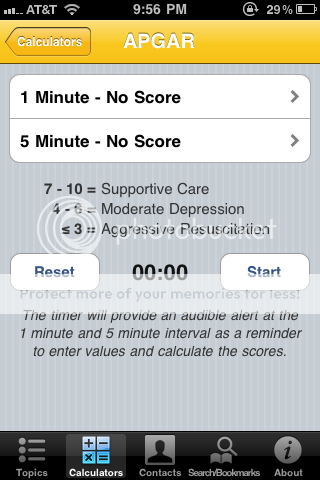
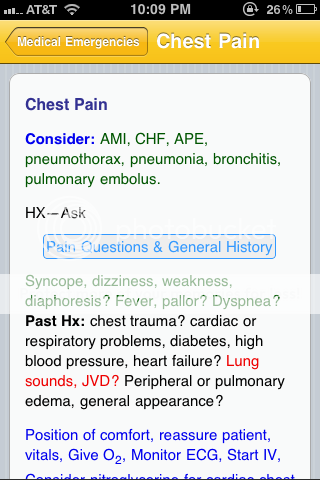
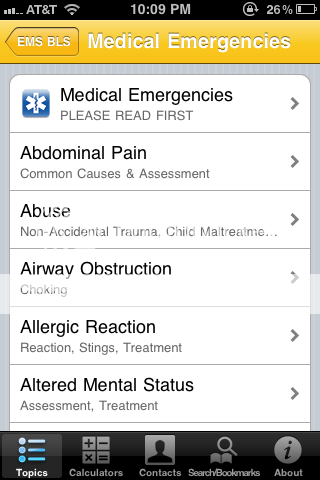
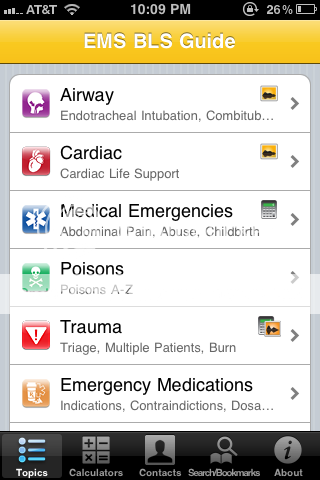
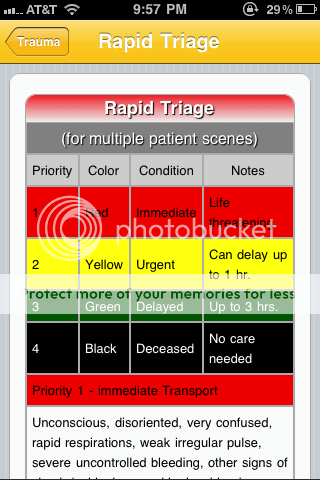
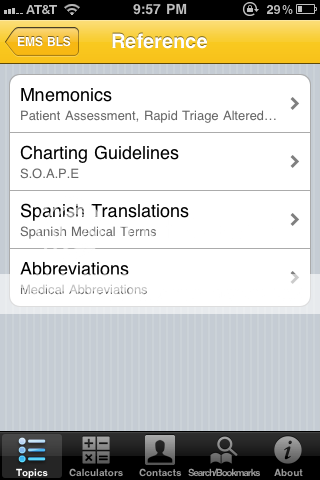
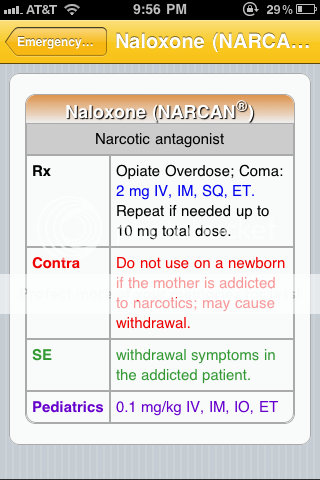
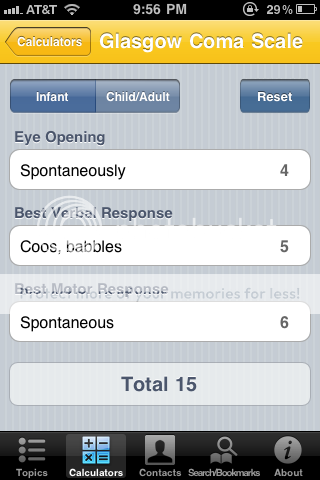
Today I downloaded a very cool app onto my iphone. Its made my Informed which is a company who makes the classic flip handbooks for ems, nursing, and police. For a while now they've had an app, but it was basically a huge pdf of the physical handbook. Recently they came out with this new app which is a full fledged one, with menus and so on.
It seems very handy for me, being able to reference things quick or look to in an "oh :censored::censored::censored::censored:" scenario. The main menu has Airway, Cardiac, Medical Emergencies, Poisons, Trauma, Emergency medication, Common drug references, and a reference section.
The first part.. airway is ET Tube, King ect..basically just for the intermediate level, which is useless to me, but still cool to go over the diagrams and steps.
The cardiac menu has CPR step by step protocol, ECG placement, ACLS algorithms ect
Medical Emergencies has protocols for basically any encounterable scenario..all color coded to symptoms, contradictions and history
Poisons has around 20 types of poisons and the common side effects, interventions, cautions and brand names
Trauma has triage diagrams, and all the protocols for anything trauma along with some diagrams of bones
Emergency medications is an intermediate/BLS drugbook with contractions ect
One of my favorite features of the app is the calculators built in...APGAR, IV rates, Burn Scales, and Glasglow to name a few...along with the intermediate drug doses.
Another menu allows you to bookmark certain things that you want to jump straight to.
Below are some screen shots. For 5 dollars it seemed like a good price; the hard copy version costs about 20.
Enjoy!











